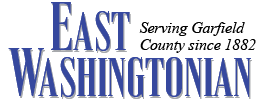OPINION
ESSB 5097 would expand the family leave mandate and payroll tax, end a promised exemption for small businesses
August 5, 2021
By Elizabeth Hovde
Senate Bill 50971 would expand coverage in the state’s Paid Family and Medical Leave (PFML) program enacted in 2017. It would do so by changing the definition of family and requiring a shorter time-period of employment before eligibility is met for certain program benefits. It also removes a job-restoration exemption for small businesses.
In 2017, the Legislature imposed a paid leave mandate “to provide partial wage replacement to employees on leave for specified family and medical reasons,” says a legislative bill report. Reasons for paid leave include the birth of a child or the placement of a child in a family, a family member’s serious health condition, or military exigency. Payroll taxes on employees and employers began on January 1, 2019, and benefits were paid out as of January 1, 2020. Paid leave is funded with 0.4 percent of each employee’s gross wages, divided between the employer and employee, with rates determined each year.2 The state Employment Security Department administers the entitlement program.
In addition to receiving pay while not working, employees eligible for the program are entitled to a continuation of employer-provided health benefits during their leave and the same or equivalent job upon their return. If the employer and employee share the cost of the existing health benefits, that shared structure continues. Job-restoration exemptions exist for small businesses.
As written, the state’s paid-leave law allows 3 employees who have worked 820 hours (about 16 hours a week) in a year to take up to 12 to 18 weeks off for medical and/or family leave and receive the program’s other job benefits. The program extends to full-time, part-time, temporary, and seasonal workers, and all hours worked in Washington count toward eligibility, even if you work for multiple employers. Small businesses with fewer than 50 workers are not required to pay into the fund, however, workers who do pay in can still benefit. The fund is currently solvent, even with use in its first year higher than expected.
This year’s bill changes the definition of “family member.” SB 5097 reads, “‘Family member’ means any individual related by blood or affinity whose close association with a covered individual is the equivalent of a family member and includes a child, grandchild, grandparent, parent, sibling, or spouse of an employee.”4
It also modifies the requirements for certain employment protections upon return from leave that would be imposed on all employers, ending an exemption, lawmakers had promised small employers with fewer than 50 employees.
On January 18, 2021, SB 5097 had a hearing in the Senate Committee on Labor, Commerce and Tribal Affairs.
Washington Policy Center has long supported voluntary family-and-medical-leave programs that employers offer their employees. Offering programs like PFML helps businesses stay competitive and receive high marks for employee satisfaction. For some businesses, family-leave benefits and job restoration make sense and do not burden workers with increased payroll taxes. Some businesses prefer to offer benefits packages in other directions, based on the makeup of their employees, and some employees prefer to receive higher pay or other benefits instead. A voluntary approach allows these workers’ wishes to be respected.
Expanding the pool of people eligible for a new, state-imposed leave program is risky and could harm employees who have this payroll tax reduce their regular monthly incomes. New financial data from the state Office of Financial Management was shared with senators and shows the expansion could result in program insolvency, funding issues that jeopardize benefit payments, and possible increases to the tax that workers and businesses pay.
The proposal’s expansion also strips away a promised exemption for businesses with fewer than 50 employees. That exemption was one of the reasons the mandated program passed with bipartisan support in the first place. Lawmakers and paid-leave advocates shouldn’t break that promise.
The expansion would be too wide, open for abuse. The bill’s new definition of family is problematic, deciding that family member means “any individual related by blood or affinity whose close association with a covered individual is the equivalent of a family member and includes a child, grandchild, grandparent, parent, sibling, or spouse of an employee.”5
This vague definition could apply to roommates, neighbors, and friends who sometimes rely on a working roommate, neighbor, or friend for help. Finding ways to ensure that a payroll-contributing worker is included in program eligibility if he or she has a “chosen” or blended family member in need, rather than a biological family member in need, is understandable. But watering down the definition to include people with a close association to a covered individual means this payroll-funded mandate would no longer be a “family leave” program and would instead apply to everyone a covered individual knows.
Promised exemption canceled. SB 5097 would also take away a promised exemption regarding job-restoration for employers with fewer than 50 employees. Again, that exemption was one of the reasons PFML passed with bipartisan support. Some lawmakers and business owners no doubt feel tricked that mandate proponents now want to break their commitment and pull back this promised exemption. Businesses have incurred significant financial and workforce losses associated with this paid-family-leave program already. Hiring and training temporary workers, or going without, as well as retraining and continuing to pay benefits, when applicable,
1 “SB 5097 - 2021-22: Expanding coverage of the paid family and medical leave program,” https://app.leg.wa.gov/billsummary?BillNumber=5097&Year=2021&Initiative=false
2 Washington Paid Family & Medical Leave, “Your role and responsibilities,” https://paidleave.wa.gov/employer-roles-responsibilities/
3 Washington Paid Family & Medical Leave, “Find out how Paid Leave works,” https://paidleave.wa.gov/find-out-how-paid-leave-works/
4 “SB 5097 - 2021-22: Expanding coverage of the paid family and medical leave program,” https://app.leg.wa.gov/billsummary?BillNumber=5097&Year=2021&Initiative=false
5 Ibid.
Hovde is the Center for Health Care Policy Analyst for the Washington Policy Center.







